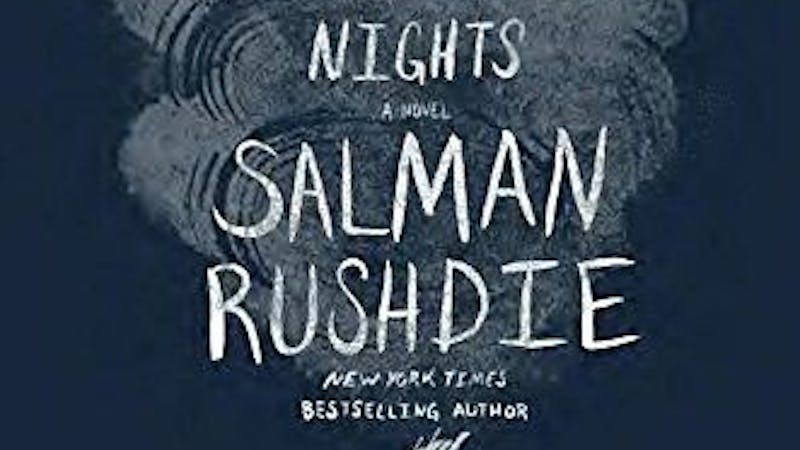
Salman Rushdie talks tolerance in Houston
Last week Salman Rushdie, an international writing icon who won two Man Booker Prizes for his novel “Midnight’s Children,” came to Houston as part of Inprint’s Margarett Root Brown Reading series. His message, one of religious tolerance and peace, coincidentally came right when both seem to be at risk around the world.Rushdie read a selected excerpt from his new book, “Two Years Eight Months and Twenty-Eight Nights.” Set in New York City, the book is centered around mythical jinn, and involves recurring themes of war, faith, religion and philosophy. The reading was followed by an onstage interview discussing Rushdie’s influences and style.Rushdie’s novel, though seen as a kind of alternate-universe fairy tale, makes several observations on our world’s relationship with things like religion and radicalism today. The interview concluded with two questions from students regarding religiously divisive politics, specifically those in India, and Rushdie’s response summarized his philosophy — secularism and pluralism should be upheld, and we must be open-minded and willing to engage with people from all parts of society while fighting terrorism and extremism. It is a philosophy that we see in many college campuses, particularly here at Rice. However, recent events both on campuses in other parts of the country and in other parts of the world have led many to ask, to what extent are we actually a secular and plural community?For instance, the event with Rushdie occurred only a few days prior to the tragic events in Beirut and Paris. In the wake of these incidents, discussion on campus and on social media has centered on the motivations of the terrorists, how to manage the aftermath of the situation and the sentiments of those in the areas affected. A candlelight vigil was held on campus by the Bonuik Council on Nov. 15 to show solidarity between Rice students and with those in areas affected by these terrible attacks. However, one major consequence of the attacks came in the form of a statement issued by Greg Abbott. The current Texas governor said Texas will no longer accept incoming Syrian refugees, who were scheduled to come into the country over the next year. Several Rice students, in keeping with Rushdie’s message, immediately reacted to this statement by organizing a campaign that will be held over the course of five days, through Facebook, to protest this announcement and fight for a more humanitarian response to the plight of the refugees who are trying to escape the very same terrorist organization that launched these attacks. “Two Years Eight Months and Twenty-Eight Nights” has an overarching theme of war between the forces of light and darkness. The havoc-wreaking jinns in the story generate terror in a manner that is very similar to much of the terrorist action we are seeing in the world today. It is important to understand our role in promoting peace and religious tolerance in our community. Facilitating discussions between people from different backgrounds and encouraging people to participate in an ongoing dialogue regarding acceptance in our community is key to promoting a healthy environment that is truly representative of our secular stance in an intellectual community.
